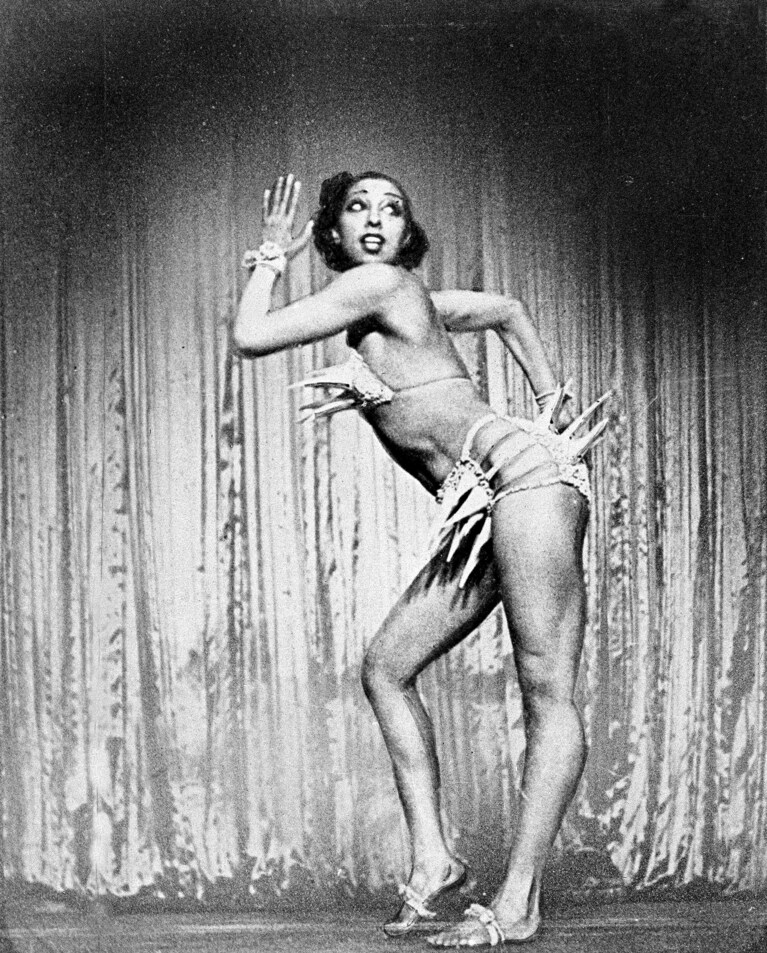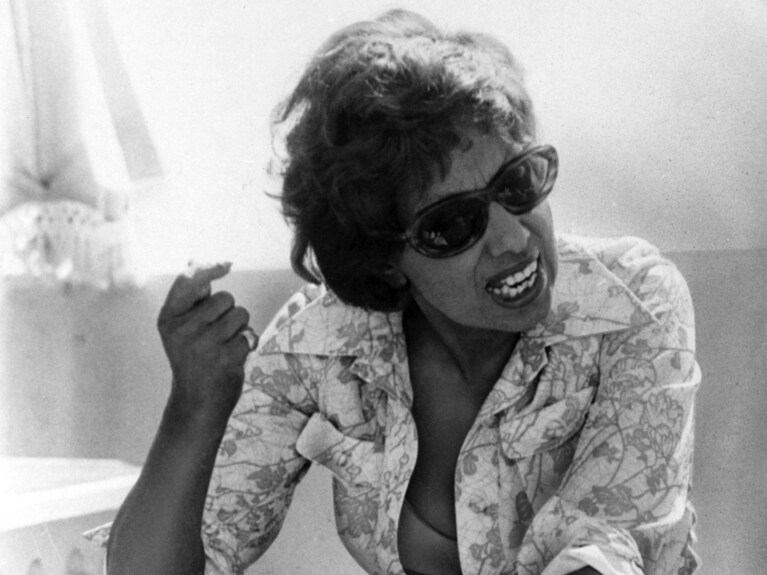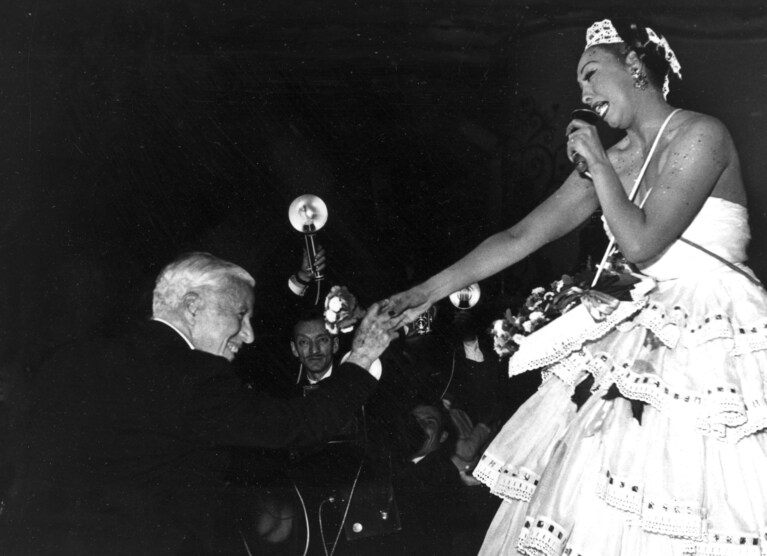
On Tuesday in Paris, Josephine Baker made history from beyond the grave.
The French American performer, member of the French resistance to the Nazis and anti-racist activist was inducted into the Panthéon, the mausoleum for national heroes in the heart of the French capital. She is the first Black woman to be honored there.
Only the French president can grant admission to the Panthéon, a select club of 80. Emmanuel Macron decided last August that Baker, who died in 1975, deserved a spot. The Élysée Palace issued a statement describing her as the “personification of the French spirit.” In a speech at Tuesday’s ceremony, Macron said, “Ma France, c’est Josephine” (“My France is Josephine”).
Baker was 𝐛𝐨𝐫𝐧 into poverty in St. Louis in 1906. Nothing predestined her for spending eternity under the dome of the Panthéon alongside the likes of Voltaire and Victor Hugo.
But during the 1920s, her sensuous and playful dancing turned her into a global icon. She was the prototypical pop star, a liberated and empowered showgirl who wasn’t afraid to flaunt her 𝓈ℯ𝓍uality in the face of a prudish society.
She’s the spiritual grandmother of artists such as Beyoncé and Nicki Minaj. Beyoncé actually paid homage to her in a 2006 live performance, donning Baker’s signature “banana dress” in front of a towering portrait of the Jazz Age icon she said she sought to emulate because she “was so free.”

Baker’s career reads like a textbook case of the American Dream; hers is a quintessential story of rags to riches. Yet because of the color of her skin, Baker couldn’t attain the American Dream in her native America. She had to sail to France to fulfill her potential — to become, as Ernest Hemingway later crowned her, “the most sensational woman anyone ever saw.”
Her beginnings, however, were far from sensational. Baker grew up in a shack in St. Louis, where she shared a bug-infested mattress with her siblings.
At 11, in 1917, she witnessed the East St. Louis race massacre. Mobs of white supremacists attacked their Black neighbors in a murderous rage. Decades later, Baker shared her harrowing memories of the events: “I can still see … the glow of the burning of Negro homes lighting the sky.”
Baker always loved to dance, comparing its effect on her to “physical intoxication … like if I had drunk gin.” At only 15, she appeared as a chorus line dancer in “Shuffle Along,” the first all-Black Broadway musical. The show has been credited with kick-starting the Jazz Age.
Despite her early success, Baker felt ill at ease living in the United States, where segregation reigned. As she later put it: “I just couldn’t stand America.” So, in 1925, at 19, she jumped at the chance to go to Paris when a promoter asked her to headline an all-Black revue there.
In the French capital, she performed dance numbers and sketches, making her debut at the Theater of the Champs-Elysées. On opening night, she said “a frenzy took possession of me … seeing nothing, not even hearing the orchestra, I danced!”
Baker danced all the way to stardom. French audiences were allured by her swagger — what Maya Angelou described as her “exotic beauty,” “flashing eyes” and “rolling hips” — and accepted her as one of their own. For the first time in her life, she felt respected as a Black woman.
Baker would remain forever grateful to France for the warm embrace. She reportedly had thousands of lovers — male and female — but her greatest love appeared to be the French Republic itself, with its motto of “Liberty, Equality, Fraternity.” Baker considered France, not America, “a land of true freedom.”

While France in 1925 was certainly more inclusive of Black people than the United States, it was no racial paradise.
Only three years before Baker’s arrival, a Black boxer named Battling Siki won the light-heavyweight championship of the world by defeating White Frenchman Georges Carpentier. An immigrant from Senegal — then a French colony — Siki experienced a torrent of racial abuse. The media nicknamed him “championzee.”
Unlike Siki, Baker did not hail from colonized Africa. As a Black American, she was treated with more consideration.
But even Baker’s act relied on colonial prejudices. Her most iconic dance — the “danse sauvage” — was a riff on the stereotype of the “African savage.” It started with Baker up in a palm tree. She slid down to the stage, revealing her curves in a barely-there “banana dress.”
Baker’s originality lay in her sardonic dancing. It played on racist preconceptions to better demolish them. As critic Thomas W. Hodgkinson aptly summarized, Baker was “a clown who was also a 𝓈ℯ𝓍 symbol.”
Baker was, in showbiz parlance, a “triple threat.” She not only danced, she also sang and acted. Her biggest song, first performed in 1930, was “J’ai Deux Amours” (I Have Two Loves). On the surface, the song is about her 𝐛𝐢𝐫𝐭𝐡 country and her adopted country but some historians speculate it was actually a cryptic reference to her bi𝓈ℯ𝓍uality.
On screen, Baker was typecast as the “exotic bombshell” in films such as “Princess Tam-Tam” and “Siren of the Tropics.”

Baker was also an early beauty mogul. She had a makeup line and a hair care brand. Actress-cum-entrepreneur Kerry Washington recently credited Baker for paving the way for her.
In 1937, Baker married French businessman Jean Lion and thereby acquired French citizenship. Three years later, when Nazi tanks rolled into Paris, Baker joined the Resistance. She told her commander (and temporary lover) Jacques Abtey: “France … adopted me without reservation. I am willing to give my life for her.”
Baker became a spy, schmoozing with high-ranking Nazi officials to obtain classified intelligence. After the liberation, she received the Croix de Guerre for her heroism.
France was the place Baker called home, but she never forgot her motherland and the plight of African Americans. In the 1950s, she toured the United States, but she refused to perform at segregated clubs. And in 1963, at 57, she spoke at the March on Washington. Her heartfelt remarks preceded Martin Luther King’s “I Have a Dream” speech.
Baker used the occasion to pass the torch to younger generations. “There is not too much fire burning inside me,” she told the crowd. “Carry on.”
She died 12 years later in her beloved Paris, leaving behind her “Rainbow Tribe” of adopted 𝘤𝘩𝘪𝘭𝘥ren from the world over.
With her entrance into the Panthéon Tuesday, the American-𝐛𝐨𝐫𝐧 Baker now ranks as a patron saint of the French Republic. But she remains a source of inspiration across the Atlantic, too. On Monday night, in anticipation of Baker’s new honor, the Empire State Building lit up in the blue, white and red of the French flag.





